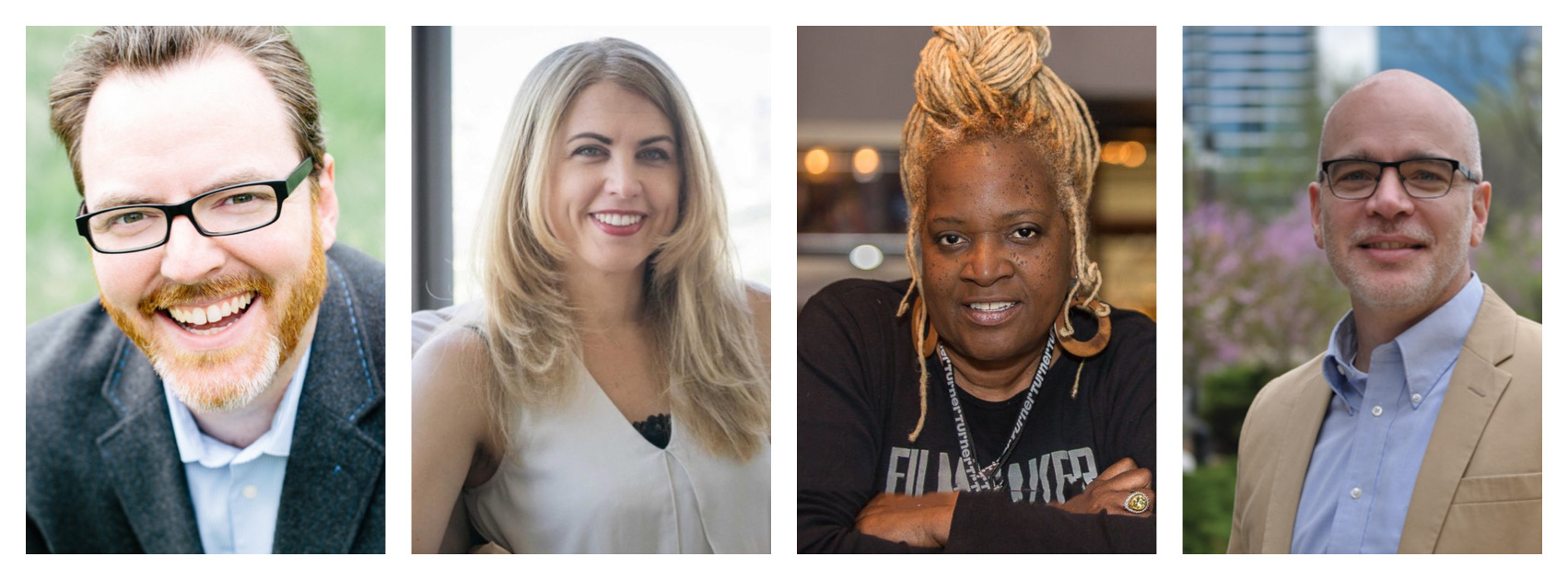
Science, Faith, Future
Lipscomb University • Nashville, TN • October 19
Science Mike • BioLogos • "Human GMO" Liz Parrish
Does the Future need Faith?
Will A.I. be our friend—or our enemy?
What does it mean to be human, if we’re merging with machines?
What impact is genetic engineering going to have on the future of our species?
Does the Future need Faith?
Can Science & Faith work together towards a better world?

Science Mike McHargue lost his faith, and then rediscovered God in science. Today, he helps millions of questioning Christians navigate their own faith and science journeys via popular podcasts “Ask Science Mike”, and “The Liturgists”.
For more information on our keynote speaker, check out his website, or listen to an interview with him here.
@mikemchargue
“Human GMO” Liz Parrish is patient zero for human genetic modification, the first patient to be treated with gene therapy to reverse aging. She has been called a "Human GMO", and is at the forefront of efforts to radically extend human life. She will be speaking on life extension, reversing the aging process, and what happens if these treatments are made available to the world.
Listen to an interview with Liz Parrish here.
@ParrishLiz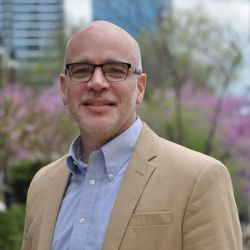
Jim Stump is VP of BioLogos—an organization at the forefront of Faith & Science dialogue. Founded by Francis Collins, the director of NIH, and former director of the Human Genome Project, BioLogos aims to reunite the Bible & Science.
Jim Stump has a PhD in philosophy and was formerly a professor and academic administrator. He is the host of the podcast Language of God, and his books include, “Four Views on Creation, Evolution, and Intelligent Design”; “Science and Christianity: An Introduction to the Issues”; “How I Changed My Mind about Evolution”; and “The Blackwell Companion to Science and Christianity”.
@BioLogosOrg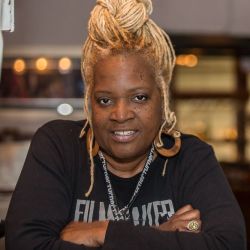
Cheryle Renee Moses is the founder/producer of the Urban Mediamakers Film Festival held annually in October in metro-Atlanta, GA — and an activist, author, content creator, educator and spiritualist. She is the author of God Told Me To Tell You To Put That Damn Bible Down and the founder of mobile app development company PerSavvy.
@UMFF
Ron Cole-Turner is the Professor of Theology and Ethics at Pittsburgh Theological Seminary, a founding member of the International Society for Science and Religion, and has served on the advisory board of the John Templeton Foundation and the Metanexus Institute.
Listen to an interview with Ron Cole-Turner here.
@RonColeTurner
Michael J. Paulus, Jr., is University Librarian, Assistant Provost for Educational Technology, and Director and Associate Professor of Information Studies at Seattle Pacific University. His administrative, teaching, and scholarly interests focus on the future of information and communication technologies, especially as they relate to higher education, libraries, work, and ethics. He is a regular contributor to the Patheos blog Digital Wisdom and a founding member of AI and Faith.
He will speaking on Data, Identity, and the Theology of the Digitally Enhanced Self.
@mjpaulusjr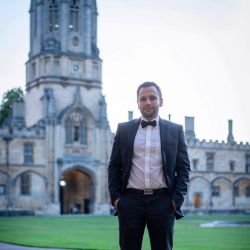
Seth P. Hart is currently pursuing a PhD in Theology and Science at Durham University and is a recipient of the Durham Doctoral Studentship. Prior to this, Seth was a Clarendon Scholar at the University of Oxford where he completed a Master of Studies in Science and Religion under Alister McGrath. He also has a Master of Arts in Theological Studies from Regent College in Vancouver, a Master of Strategic Ministry from Johnson University, and a Bachelor of Arts in Christian Ministry from Ozark Christian College. He currently resides in Little Rock, Arkansas with his wife and a very moody cat.
He will be speaking on Teilhard and the Transhumanist: A Critique of Atheistic Transhumanism.
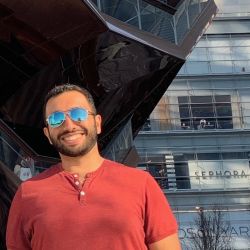
Paul Rezkalla is a Graduate Fellow of the Society of Christian Philosophers and an Associate of the Ian Ramsey Centre for Science and Religion. He is currently a Ph.D. candidate in philosophy at Florida State University and simultaneously pursuing a M.Sc. in cognitive and evolutionary anthropology at Oxford University as part of his doctoral research on the evolution of morality. He also holds a MA in philosophy from the University of Birmingham (UK) and a MA in theology from Saint John’s University. He will be speaking on What's Wrong With the Scientific Study of Morality?
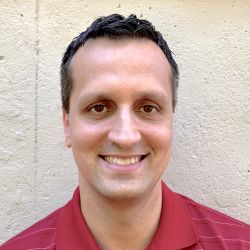
Elias Kruger is a Senior Data Scientist and VP at Wells Fargo Bank with over 15 years of industry experience. He also completed a Masters in Theology from Fuller Seminary and an MBA from Regent University. He blogs at www.aitheology.com where he seeks to apply a thoughtful Christian lens to the promise and peril of Artificial Intelligence.
@EliasRKruger
Jonathan Gunnell is an Australian, Engineer, and Christian (mostly Anglican, but also Baptist and Charismatic/Pentecostal), who is keen to see Christianity impact the developing of A.I. governance systems and coming technological changes.
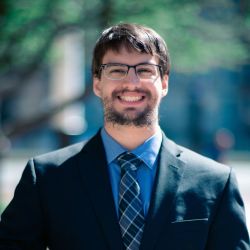
Seth Villegas is a third-year doctoral student at Boston University’s School of Theology. He developed many of his current interests in religion and technology while he was an undergraduate at Stanford University. His current research examines transhumanist and other secular communities, asking questions about the future of religious life. He will be speaking on Christian and Secular Visions of Transhumanist Immortality.
@sethvillegas27
Andreas “Andrico” Mourelatos is a junior studying physics and philosophy at Belmont University in Nashville, Tennessee. He works with professor Dr. Scott Hawley on the grant project “Christian Responses to the Ascendancy of Artificial Intelligence,” as part of the “Bridging the Two Cultures of Science and the Humanities II” program run by Scholarship and Christianity in Oxford (SCIO), with funding by Templeton Religion Trust and The Blankemeyer Foundation. He will be speaking on "AI Creeds and Confessions".

Lorenzo Barberis Canonico is a Ph.D. student in human-centered computing at the Clemson University. He is part of the Team Research Analytics in Computational Environments (TRACE) Research Group. His research interest include team cognition, machine learning, cognitive science, and game theory. He will be speaking on the Theology of Escaping the Simulation.
@LBarberis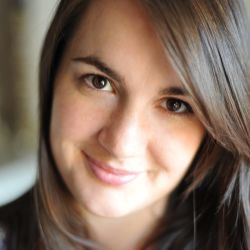
Blaire Ostler is a philosopher and leading voice at the intersection of queer, Mormon, and transhumanist thought. She is a board member and former CEO of the Mormon Transhumanist Association, the world's largest advocacy network for the ethical use of technology and religion to expand human abilities. She presents and writes on many forums, and speaks at conferences promoting authentic Mormonism. Blaire holds a degree in design from the International Academy of Design and Technology-Seattle. She is currently pursuing a second degree in philosophy with an emphasis in gender studies. She is also an artist, and spends her spare time hiking, painting, writing, and bickering with her friends about almost any topic imaginable. Blaire and husband Drew reside in Utah with their three children.
@blaire_ostler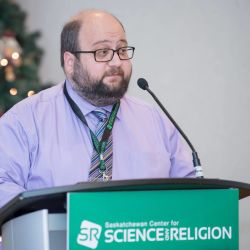
Braden Molhoek has a B.A. with a double major in Genetics and Religion from Ohio Wesleyan University, an M.T.S. from Boston University, and a Ph.D. from the Graduate Theological Union in Ethics and Social Theory. He currently works at the Center for Theology and the Natural Sciences and is an Adjunct Professor at the Graduate Theological Union and Santa Clara University. His research interests include how science shapes theological anthropology, virtue ethics, transhumanism, ethics and technology, and bioethics.
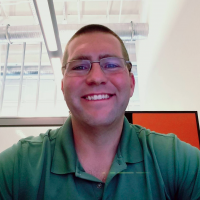
Brian O. Sigmon is acquisitions editor at The United Methodist Publishing House, where he edits books, Bible studies, and official resources for The United Methodist Church. He has a Ph.D. in Old Testament Studies from Marquette University, where he taught courses in the Bible and theology. Brian finds great joy in thinking deeply about the Christian faith and helping people of all backgrounds deepen their understanding of Scripture. He blogs about the Bible, theology, and the universe at Starstruck Christian. Brian lives in Kingston Springs, Tennessee with his wife Amy and their three children.
@BrianSigmon
Neal Locke is a former High School English teacher, current Presbyterian pastor, and future monastic bicentenarian. He holds an M.Div. and a Master of Arts in Education, both from Princeton Theological Seminary. He is a husband and a father of three who enjoys using open source software, building virtual environments, and brewing his own beer. Ever the pioneer, Neal wrote his first program on a Commodore 64 in 1983, designed his first website in 1995, and was recognized by EdTech magazine in 2004 for being one of the first teachers in the nation to incorporate blogging in the classroom. In 2009 Neal helped to organize 1PCSL — a Presbyterian community that gathers weekly in the online virtual world of Second Life. Neal can be reached via Facebook, twitter, and Google+ using the handle “mstrlocke,” in Second Life via his avatar “Neill Loxingly,” and via his website at mrlocke.net.
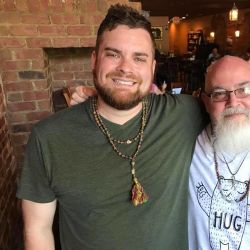
Mike Morrell is the collaborating author, with Fr. Richard Rohr, on the best-selling 'Divine Dance: The Trinity and Your Transformation,' founder of Wisdom Camp, and a founding organizer of the justice, arts, and spirituality Wild Goose Festival. Mike curates contemplative and community experiences via Relational Yoga, the ManKind Project, and Authentic North Carolina, taking joy in holding space for the extraordinary transformation that can take place at the intersection of anticipation, imagination, and radical acceptance. Mike lives with his wife and two daughters in Asheville, North Carolina. You can read Mike’s ongoing exploration of Spirit, Culture, and Permaculture at MikeMorrell.org.

Pedro Garcia is the founder and host of Ask & Wonder, a dialogue series that brings Christians and Atheists together, to discuss the big questions. He has led a storied career as musician, appearing as a finalist on Spain's nationally-televised “Spain’s Got Talent!”, touring internationally, and co-producing with 3x Grammy-winning saxophonist Jeff Coffin of Dave Matthews Band.
Pedro is one of our conference MCs.
@ASKandWONDER1
Patrick Chappell is a podcaster, a Nashvillian, and a music aficionado.
Patrick is one of our conference MCs.
@PatrickChappellSchedule (subject to change!)
| # | Title | Name |
|---|---|---|
| 8:30 | COFFEE & REGISTRATION — First 50 attendees get free Thrivous Geroprotectors ($60 value)! | |
|
|
||
| 9:00 | Welcome to the Future! | |
|
|
||
| 9:10 | Jim Stump | Science & Faith in the Key of Transhumanism |
Science & Faith in the Key of TranshumanismWhat we will be has not yet been made known (1John 3:2) 
Jim Stump is VP of BioLogos—an organization at the forefront of Faith & Science dialogue. Founded by Francis Collins, the director of NIH, and former director of the Human Genome Project, BioLogos aims to reunite the Bible & Science. Jim Stump has a PhD in philosophy and was formerly a professor and academic administrator. He is the host of the podcast Language of God, and his books include, “Four Views on Creation, Evolution, and Intelligent Design”; “Science and Christianity: An Introduction to the Issues”; “How I Changed My Mind about Evolution”; and “The Blackwell Companion to Science and Christianity”. @BioLogosOrg |
||
| 9:30 | Andreas Mourelatos | AI Creeds & Confessions |
AI Creeds & ConfessionsOver the past few years, at least 60 institutes, governments, companies, and other organizations have published sets of ethical principles regarding the creation and implementation of artificial intelligence in all parts of society. Despite a high degree of similarity -- e.g. many include general statements regarding human rights, safety, and transparency -- there are some differences of perspective and emphasis which merit exploration as they may lead to different consequences. This presentation is a meta-analysis of the creation of moral guidelines about artificial intelligence across religious and secular organizations for the purpose of comparing why “AI Creeds” are made, what they contain, and their implications for the future. 
Andreas “Andrico” Mourelatos is a junior studying physics and philosophy at Belmont University in Nashville, Tennessee. He works with professor Dr. Scott Hawley on the grant project “Christian Responses to the Ascendancy of Artificial Intelligence,” as part of the “Bridging the Two Cultures of Science and the Humanities II” program run by Scholarship and Christianity in Oxford (SCIO), with funding by Templeton Religion Trust and The Blankemeyer Foundation. He will be speaking on "AI Creeds and Confessions". |
||
| 9:45 | Michael J. Paulus, Jr. | Theology of Digital Identity |
Theology of Digital IdentityIn the HBO-BBC miniseries "Years and Years," a teenager named Bethany (!) comes out as transhuman and tells her parents she wants to “live forever as information … [to] be data!” As information about us increasingly takes the form of digital data, we are all of us becoming data. Indeed, so much of our attention and agency is engaged with digital information in digital environments that the philosopher Luciano Floridi describes us as “inforgs” living “onlife” in an “infosphere.” Through nearly constant and ubiquitous patterns of digital interactions with human and artificial agents, we are creating digitally extended and enhanced selves. But instead of seeing our selves as reducible to data, this presentation explores how Christianity—rooted in eschatological expectation and technological transformation—can help us understand and live our digitally enhanced lives well. 
Michael J. Paulus, Jr., is University Librarian, Assistant Provost for Educational Technology, and Director and Associate Professor of Information Studies at Seattle Pacific University. His administrative, teaching, and scholarly interests focus on the future of information and communication technologies, especially as they relate to higher education, libraries, work, and ethics. He is a regular contributor to the Patheos blog Digital Wisdom and a founding member of AI and Faith. He will speaking on Data, Identity, and the Theology of the Digitally Enhanced Self. @mjpaulusjr |
||
| 10:00 | Jonathan Gunnell | Scripture: The highest of many sources of truth |
Scripture: The highest of many sources of truthAs well as scripture, humans obtain truth via experience, (which includes science), the general revelation, our conscience, our community, and the Holy Spirit convicting us individually. We must interpret all sources of truth to be in harmony. Scripture contains many different kinds of literature. Some is historical, some allegorical, some poetry, direct quotations, witness statements, even hyperbole! (Matt 18:9) God is truth, the logos “word” is revealed progressively. Revelation in scripture is progressive, from the Old Testament God of Justice to the person of Jesus in the New Testament. We see a developing picture of God, consistent with the exponential growth us Transhumanists love. This growth culminates in Jesus, the author and perfecter of our faith, and as we continue to grow in understanding of all kinds of knowledge, eventually good (God) will win, as we see our species redeemed from the fall. Literalist interpretations of the entire Bible do not stand up to scrutiny for three main reasons: 1. Literalism is a recent phenomenon, historically occurring only after humans started treating other texts this way. 2. Numerous contradictions in detail exist. Try asking “What were Jesus’ very last words on the cross before he died?” 3. The vast number of languages into which scripture must be translated do not permit the kind of accuracy that literalists need to build theological systems. Different languages simply aren’t as precise. Therefore, it is the stories, the archetypes, the revelation of God and the facts of the resurrection that are important, not an obscure verb conjugation that will bring us into some understanding which is necessary for salvation. To fully enter into the truth of God, we must have a mature understanding of scripture. It was not “dictated” by God. It was not “automatic writing” done by people in trances. It was written by faithful followers who wrote with the light they were given. Scripture is reliable to the extent necessary to understand how Jesus was the fulfilment of what we already knew about God from the general revelation, our conscience and what we could determine from experience and science. Scripture, properly understood, pulls together the other strands of truth, so that they all bear witness to each other. It is a message the world was primed to receive, had longed for, and this message, together with other sources of truth, will chart a Transhumanist future. 
Jonathan Gunnell is an Australian, Engineer, and Christian (mostly Anglican, but also Baptist and Charismatic/Pentecostal), who is keen to see Christianity impact the developing of A.I. governance systems and coming technological changes. |
||
| 10:15 | BREAK — and giveaways! | |
|
|
||
| 10:30 | Liz Parrish | Human Genetic Modification |

“Human GMO” Liz Parrish is patient zero for human genetic modification, the first patient to be treated with gene therapy to reverse aging. She has been called a "Human GMO", and is at the forefront of efforts to radically extend human life. She will be speaking on life extension, reversing the aging process, and what happens if these treatments are made available to the world. Listen to an interview with Liz Parrish here. @ParrishLiz |
||
| 11:00 | Braden Molhoek | Negative Freedom and Procreative Beneficence: Framing the Kinds of Enhancements that Ought to be Pursued |
Negative Freedom and Procreative Beneficence: Framing the Kinds of Enhancements that Ought to be PursuedMuch of debate about what should be allowed in terms of gene editing or human enhancement focuses on the notion of freedom. Specifically, proponents of enhancement argue that they should have the freedom to alter their genome or bodies in whatever way they seem fit, particularly because the only person likely affected is the person choosing to undergo change. Such an understanding of freedom is a negative definition of liberty or freedom. An example of negative freedom in the context of modern bioethics is the principle of nonmaleficence, that one ought not to do harm to others. Avoiding harm to others is not a very stringent principle because it does not take a great deal of effort. Refraining from harm in the enhancement context would be to not interfere and allow people to pursue what enhancements they choose. While nonmaleficence may not be stringent, the principle of beneficence is often seen to be much more stringent. Beauchamp and Childress argue that while it is not possible to harm a number of people at once, it is not possible to actively help a large number of people simultaneously. To actively help someone requires time or resources that avoiding harm does not. In the context of human enhancement, beneficence would entail helping people, either through your own work or through financial support, to receive enhancements. Traditionally beneficence is most often tied to one’s circle of concern. You are expected to help a relative or loved one more than a complete stranger, though there are circumstances where people need rescuing that beneficence would compel helping a stranger. The question of beneficence in the context of human enhancement has received growing attention thanks to Julian Savulescu who speaks of procreative beneficence, that people have an obligation to bring about the best offspring as possible. Whether or not one ultimately agrees with Savulescu is not important in my opinion. However, I do argue that even the possibility of procreative beneficence forces us to examine the kinds of enhancements that people are pursing and what they ought to be pursuing. If the purpose of enhancement is freedom, then it should not be surprising that the traits people wish to enhance have a great variety. It can be enhancing an existing human ability, introducing new abilities or characteristics into the human genome or phenotype, or could be aesthetic choices. If the purpose of enhancement is an obligation to help, then the kinds of enhancement that people pursue are more likely to be focused on reducing suffering, curing disease, or restoring function. Even if an obligation for procreative beneficence does not stand, contrasting negative freedom and beneficence shifts the conversation about the nature of the purpose of enhancement and which enhancements might carry more moral weight, a conversation that I believe is of particular importance to Christian Transhumanists. 
Braden Molhoek has a B.A. with a double major in Genetics and Religion from Ohio Wesleyan University, an M.T.S. from Boston University, and a Ph.D. from the Graduate Theological Union in Ethics and Social Theory. He currently works at the Center for Theology and the Natural Sciences and is an Adjunct Professor at the Graduate Theological Union and Santa Clara University. His research interests include how science shapes theological anthropology, virtue ethics, transhumanism, ethics and technology, and bioethics. |
||
| 11:15 | Seth Villegas | Immortality without Eschatology |
Immortality without EschatologyBoth Christian and secular forms of transhumanism advance the importance of eventual immortality for humanity. The goal of this presentation is to test our definition of immortality and to consider different scenarios for achieving immortality, notably a biological scenario and a digital scenario. An analysis of immortality can also highlight the real tensions between Christian and secular forms of transhumanism, particularly in relationship to what immortality is fundamentally for. My presentation will stress these ideas of immortality by analyzing them on different time frames: a hundred years in the future, ten-thousand years in the future, and an infinite number of years in the future. Finally, I will conclude by posing some questions about what it is that we mean by ‘immortality’ in relationship to these time frames. 
Seth Villegas is a third-year doctoral student at Boston University’s School of Theology. He developed many of his current interests in religion and technology while he was an undergraduate at Stanford University. His current research examines transhumanist and other secular communities, asking questions about the future of religious life. He will be speaking on Christian and Secular Visions of Transhumanist Immortality. @sethvillegas27 |
||
| 11:30 | Neal Locke, Liz Parrish | Genetic Modification & the Image of God |
Genetic Modification & the Image of GodAre we becoming Superhuman? Posthuman? Metahuman? 
Neal Locke is a former High School English teacher, current Presbyterian pastor, and future monastic bicentenarian. He holds an M.Div. and a Master of Arts in Education, both from Princeton Theological Seminary. He is a husband and a father of three who enjoys using open source software, building virtual environments, and brewing his own beer. Ever the pioneer, Neal wrote his first program on a Commodore 64 in 1983, designed his first website in 1995, and was recognized by EdTech magazine in 2004 for being one of the first teachers in the nation to incorporate blogging in the classroom. In 2009 Neal helped to organize 1PCSL — a Presbyterian community that gathers weekly in the online virtual world of Second Life. Neal can be reached via Facebook, twitter, and Google+ using the handle “mstrlocke,” in Second Life via his avatar “Neill Loxingly,” and via his website at mrlocke.net. |
||
| 12:00pm | LUNCH | |
|
|
||
| 1:00pm | Ron Cole-Turner | Transhuman Christ |
Transhuman ChristMost Christians don’t see the connection between Christianity and Transhumanism. That’s because their view of Jesus Christ is limited. As they see it, Christ’s whole purpose is to die for our sins so we can go to heaven when we die. That misses about 99% of what Jesus Christ really means. Christ is much more than a rescue plan for sinful humanity. Christ is God’s “Plan A” from the beginning, not Plan B. Christ does much more than free us from sin and death. Christ is the completion of creation, the transformation and glorification of all humanity, as Paul and many of the greatest early Christian theologians recognized. This talk invites us to reclaim and reimagine Christ for our time, not as one individual who lived long ago but as the glorification or transhumanization of all humanity and all creation. By taking on our humanity in the Incarnation, Christ is the first Transhuman, the first-born of the New Creation. We are invited to live “in Christ,” which means to embrace with joy the transformation that God is already completing for us all in Christ. Then we are invited to use every power at our disposal to participate in God’s plan for creation’s transformation. By reclaiming early Christianity’s vision of cosmic transformation in Christ, we can see our work as encompassed in God’s own plan for all things. 
Ron Cole-Turner is the Professor of Theology and Ethics at Pittsburgh Theological Seminary, a founding member of the International Society for Science and Religion, and has served on the advisory board of the John Templeton Foundation and the Metanexus Institute. Listen to an interview with Ron Cole-Turner here. @RonColeTurner |
||
| 1:15pm | Seth Hart | Teilhard & Transhumanism |
Teilhard & TranshumanismIn the popular works of Yuval Noah Harari, Ray Kurzweil, and other atheistic humanists, transhumanism is offered as a pseudo-religious alternative to the Christian faith. For instance, Harari claims, “The antidote to a meaningless and lawless existence was provided by humanism, a revolutionary new creed that conquered the world during the last few centuries. The humanist religion worships humanity, and expects humanity to play the part that God played in Christianity.” Likewise, the popular writer Ray Kurzweil claims the future will see the merger of humanity with technology, resulting in what he calls the “waking up” of the universe. This will, in effect, result in the transformation of humanity into the divine. In an interview, when asked if God existed, Kurzweil therefore answered, “Not yet.” These authors have thus achieved the resurrection of the Nietzschean superman which becomes, for the humanist, the alternative to God. However, what these and similar authors have neglected is the genetic relationship of transhumanism to Christian theology. In fact, one of the first to use the term “trans-human” was Jesuit priest and paleontology Pierre Teilhard de Chardin. Eric Steinhart argues, “Many transhumanists work within the conceptual architecture of Teilhard’s [theology] without being aware of its origins. Indeed, Teilhard is mostly ignored in the histories of transhumanism.” Moreover, Teilhard’s particularly Christian vision of transhumanism answers two perplexing questions humanistic alternatives have been unable to resolve. First, the humanist can provide no impetus or causal explanation for why the history of the universe has tended toward greater complexity and cerebralization. Progress, it would seem, is an accidental feature of reality rather than the natural teleological unfolding of providential design. Hence, any faith in its continuity appears specious for the atheist. Second, the humanist fails to account for how humanity’s future state can ground meaningful action in the present. Why should it matter to the individual now what the future looks like if she cannot participate in it? Teilhard’s Christian model demonstrates its superiority by providing an explanation for the impetus toward progress and an ethical dimension to one’s participation in the evolutive process. In theological terms, while the humanist might offer us an alternative faith, it is empty without hope and love. 
Seth P. Hart is currently pursuing a PhD in Theology and Science at Durham University and is a recipient of the Durham Doctoral Studentship. Prior to this, Seth was a Clarendon Scholar at the University of Oxford where he completed a Master of Studies in Science and Religion under Alister McGrath. He also has a Master of Arts in Theological Studies from Regent College in Vancouver, a Master of Strategic Ministry from Johnson University, and a Bachelor of Arts in Christian Ministry from Ozark Christian College. He currently resides in Little Rock, Arkansas with his wife and a very moody cat. He will be speaking on Teilhard and the Transhumanist: A Critique of Atheistic Transhumanism. |
||
| 1:30pm | Lorenzo Barberis Canonico | The Theology of Escaping the Simulation |
The Theology of Escaping the SimulationWhen asked what is the practical implication of his simulation theory, Nick Bostrom famously replied "we should probably be open to the idea there is a Heaven". Religion and artificial intelligence alone are on their own sufficient to give us the answer as to how we would go about escaping the simulation if we are in one: they need to be integrated into a coherent perspective that embraces the role technology will play to answer theological and scientific implications of what could turn out to be the core question of religions moving forward. What's the nature of the Simulator? What's the purpose of the Simulation? How will the Simulation shape our relationship with artificial intelligence? These are the questions I plan on putting forth and wrestle with. It's inspired by this blog post I wrote (https://medium.com/breathe-publication/simulation-theology-aefd39797e65) that led Micah to reach out last year. He's the one who introduced me to the community. 
Lorenzo Barberis Canonico is a Ph.D. student in human-centered computing at the Clemson University. He is part of the Team Research Analytics in Computational Environments (TRACE) Research Group. His research interest include team cognition, machine learning, cognitive science, and game theory. He will be speaking on the Theology of Escaping the Simulation. @LBarberis |
||
| 1:45pm | Paul Rezkalla | What's Wrong With the Scientific Study of Morality? |
What's Wrong With the Scientific Study of Morality?Chesterton famously wrote, “The obvious truth is that the moment any matter has passed through the human mind it is finally and for ever spoilt for all purposes of science.” By this he meant that often the object or phenomenon that is amenable to scientific examination is either only a piece of the phenomenon or completely distinct from but related to it. For the last two centuries, philosophers and empiricists have battled over the disputed borders of ethics. And ethics is constantly having to be rescued from the hands of the scientists. Evolutionary Biologists and Behaviorologists like Frans de Waal, E.O. Wilson, and others have attempted to utilize findings in primatology and animal behaviorism to argue that morality can be reduced to evolutionary phenomena. In this way, they argue, we can ground morality in the evolutionarily beneficial tendencies that we have come to hold as a species as a result of our evolutionary history. In this paper, I will flesh out some of the difficulties in reducing morality to evolutionary tendencies. The evolutionary sciences often stray out of their job description and seek to supplant philosophy and ethics through collapsing questions about normativity to questions about evolutionary history. Evolutionary explanations for morality are beneficial so long as they do not attempt to function as meta-ethical or normative, otherwise the naturalistic fallacy is at risk. Further, I argue that the object of study in the evolutionary approach to morality is not actually morality. The phenomena amenable to scientific exploration, like altruism and cooperation, are themselves subject to moral evaluation so that to make them identical with morality would be a mistake. I suggest that whatever turns out to be the correct evolutionary story regarding the evolution of morality will provide us with merely the precursor to morality and/or the animalistic co-extension of morality. The capacity for cooperation may be a necessary precursor to morality or it might be that cooperation is merely a necessary co-extension of morality that is subject to moral evaluation. Or it may be both. The fundamental problem, however, is that the object(s) of study amenable to biological, anthropological, psychological, and ecological study is not morality, itself. 
Paul Rezkalla is a Graduate Fellow of the Society of Christian Philosophers and an Associate of the Ian Ramsey Centre for Science and Religion. He is currently a Ph.D. candidate in philosophy at Florida State University and simultaneously pursuing a M.Sc. in cognitive and evolutionary anthropology at Oxford University as part of his doctoral research on the evolution of morality. He also holds a MA in philosophy from the University of Birmingham (UK) and a MA in theology from Saint John’s University. He will be speaking on What's Wrong With the Scientific Study of Morality? |
||
| 2:00 | Brian Sigmon | Theology, Innovation, and Rubik's Cube |
Theology, Innovation, and Rubik's Cube**Living Tradition and Faithful Innovation.** Brian Sigmon explores our theological task as we look to the future, recognizing the centrality of divine revelation in the Christian worldview. We don't chart new territory on our own, but carry forward what we have received and adapt it in light of new circumstances. Using the idea of traditioned innovation developed by Gregory Jones and others at Duke Divinity School, Sigmon calls us to value and attend to Christian tradition as a way of discerning how to live faithfully in a changing present and emerging future. 
Brian O. Sigmon is acquisitions editor at The United Methodist Publishing House, where he edits books, Bible studies, and official resources for The United Methodist Church. He has a Ph.D. in Old Testament Studies from Marquette University, where he taught courses in the Bible and theology. Brian finds great joy in thinking deeply about the Christian faith and helping people of all backgrounds deepen their understanding of Scripture. He blogs about the Bible, theology, and the universe at Starstruck Christian. Brian lives in Kingston Springs, Tennessee with his wife Amy and their three children. @BrianSigmon |
||
| 2:15pm | BREAKOUT SESSIONS | |
|
|
||
| 2:45pm | BREAK — and giveaways! | |
|
|
||
| 3:00pm | Micah Redding | Christian Transhumanism & the Future of Faith |
|
|
||
| 3:20pm | Elias Kruger | Dreaming Alternative Futures with Black Panther (panel intro) |

Elias Kruger is a Senior Data Scientist and VP at Wells Fargo Bank with over 15 years of industry experience. He also completed a Masters in Theology from Fuller Seminary and an MBA from Regent University. He blogs at www.aitheology.com where he seeks to apply a thoughtful Christian lens to the promise and peril of Artificial Intelligence. @EliasRKruger |
||
| 3:30pm | Elias Kruger, Cheryle Renee Moses, Brittany Taylor Paschall | The Future & Equity |
|
|
||
| 4:00pm | BREAKOUT SESSIONS | |

Neal Locke is a former High School English teacher, current Presbyterian pastor, and future monastic bicentenarian. He holds an M.Div. and a Master of Arts in Education, both from Princeton Theological Seminary. He is a husband and a father of three who enjoys using open source software, building virtual environments, and brewing his own beer. Ever the pioneer, Neal wrote his first program on a Commodore 64 in 1983, designed his first website in 1995, and was recognized by EdTech magazine in 2004 for being one of the first teachers in the nation to incorporate blogging in the classroom. In 2009 Neal helped to organize 1PCSL — a Presbyterian community that gathers weekly in the online virtual world of Second Life. Neal can be reached via Facebook, twitter, and Google+ using the handle “mstrlocke,” in Second Life via his avatar “Neill Loxingly,” and via his website at mrlocke.net. |
||
| 4:45pm | BREAK — and giveaways! | |
|
|
||
| 5:00pm | Science Mike McHargue | Science, Transhumanism, Faith |

Science Mike McHargue lost his faith, and then rediscovered God in science. Today, he helps millions of questioning Christians navigate their own faith and science journeys via popular podcasts “Ask Science Mike”, and “The Liturgists”. For more information on our keynote speaker, check out his website, or listen to an interview with him here. @mikemchargue |
||
| 6:00pm | CLOSING PANEL | |
|
|
||
Conference Map
Venue
Lipscomb University
Shamblin Theater
Directions & Best Place to Park
Granny White & Allen Arena East (Google Map Directions). From the Granny White Pike entrance, park in the Allen Arena East Parking Garage. Take the walkway to the Student Center. Inside the Student Center entrance, walk straight back to Shamblin Theater.
Belmont Blvd & Allen Arena West (Google Map Directions). From the entrance on Belmont Blvd (NOT the main University entrance), park in the Allen Arena West Parking Garage. Walk out of the garage, across the roundabout, past the Bell Tower, and take the walkway to the Student Center. Inside the Student Center entrance, walk straight back to Shamblin Theater.
Free Stuff!
The first 50 people through the door receive Free Thrivous Geroprotectors ($60 value!). Doors open at 8:30am—so get there early, and start meeting people!
There are giveaways at every break—drones! music! books!—and more! But you have to be present to win!
Choose the discussion topics:
Right after lunch, we're having breakout discussions on the topics you choose. Add your topics, and vote on other topics—in this poll:
Sponsors
Local Accommodations
- Embassy Suites by the airport (10 Century Blvd, Nashville, TN 37214).
- Alternatively, the hotels closest to Lipscomb University (both approximately 5-10 min drive) are:
- Courtyard by Marriott - Green Hills
3800 Bedford Ave, Nashville, TN 37215 - Hampton Inn and Suites - Green Hills
2324 Crestmoor Rd, Nashville, TN 37215
- Courtyard by Marriott - Green Hills
- It's also possible to stay at Lipscomb for $150 per night. Find out more info here.
About the Conference
It's not just Black Mirror and Altered Carbon. Real-life questions in A.I., genetic engineering, and brain-computer interfaces—are already shaking Silicon Valley and the world. They raise the question:
Is Science replacing God?
Is religion relevant in a rapidly changing world?
Does the Future need Faith?
We bring together leading thinkers and activists, both secular and religious, to discover how faith empowers us to work together towards a better world.
For more information on Christian Transhumanism, and our mission to work against illness, hunger, oppression, injustice, and death, explore our website at www.christiantranshumanism.org